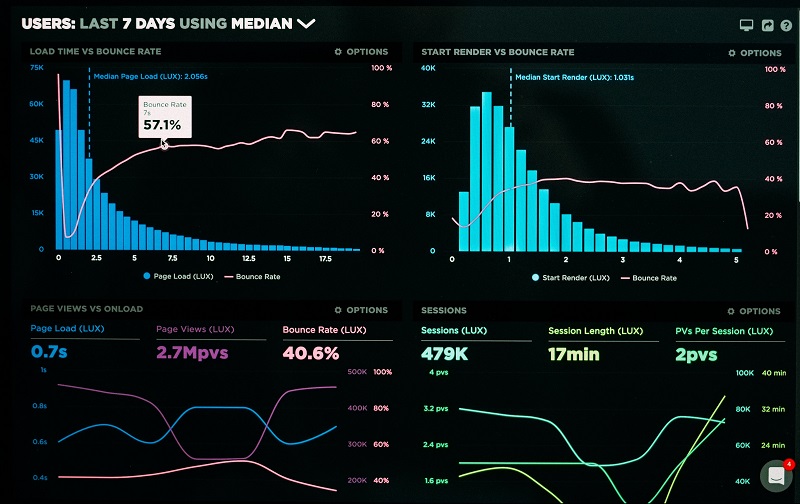Do online listings improve matching in residential property markets?
In a study that matched online portal listings with successful transactions, Sing and Zou (2021) found that online agents typically enjoy better sales and higher prices.
29 April 2022

Property advertising has evolved tremendously over the years. The proliferation of online listing websites in Singapore started after 2013. Since then, property ads have rapidly moved beyond the display and classified sections of traditional broadsheets. They are today found on property portals, search engine advertising and social media.
Online advertising tends to be cheaper than print media, and the typical sales pitch would include contextually sensitive ads that target the right demographics at the right time, or even the right place if location-based marketing is deployed.
But is advertising on the Internet as effective as its advocates would claim?
In their paper “Improving information efficiency in housing markets using online listings”, Sing and Zou (2021) found that ads on property portals eventually lead to higher listing-to-sales conversion rates and better transaction prices compared to those that were not. So in real estate commerce, the Internet appears a compelling value-add indeed.
Methodology
Sing and Zou obtained a dataset of about 2 million online property listings from major online service providers (including PropertyGuru, STProperty and 99.co) from 2013 to 2016.
After filtering out samples of landed homes and data with incomplete entries, these listings were then matched against housing transaction data over the same period from REALIS, the caveat lodgement system administered by the Singapore government. At the outset, over 500,000 pairs of listing-transaction observations were generated.
The researchers then deployed a “nearest time” rule to address the problem of duplication and overcounting. For any transaction matched with multiple listings, only the most recent listing was treated as the relevant match, and the earlier ones were discarded. If an agent reposted a listing multiple times, only the most recent listing matched to a transaction was retained.
With such a filtering method, 40,233 listing-transaction pairs were identified for analysis and made up the treatment group, while the balance of unpaired transactions went into the control group.
Based on the hedonic regressions controlling for property, spatial, sale and buyer type, location, and year of sale variables, Sing and Zou found that properties with online listings commanded prices that were at least 3.26% higher, on average, than those that were not listed on any online portal. The result was statistically significant at 1%.

Addressing selection bias & robustness test
The issue of properties with certain attributes (e.g. resale units) being more likely to be selected for the treatment group highlights the problem of insufficient randomisation. As an illustration, the treatment group might, for instance, be overly represented by resale properties, whereas new apartments may form the bulk of units in the control group. It would be unclear whether it is actually an online listing or sale type responsible for the price differential in such a scenario.
The researchers deployed propensity score matching (PSM) to identify “comparable pairs of listed and non-listed properties” to address this potential problem. In this approach, a unit in the treatment group was matched with a closely similar unit in the control group, thus creating an “apples for apples” comparison. Variables used to generate the matched samples include floor area, floor level, distance away from CBD and MRT stations, property type, tenure, sale type, district and transaction year.
Regression on this new set of PSM-matched samples again showed that properties with online listings commanded a statistically significant premium over their non-online counterparts, albeit at a lower quantum of 1.98%.
The change in magnitude suggests that PSM successfully filtered out the selection bias. Also, given the more stringent pairing criteria, the post-PSM regression served as a robustness test, corroborating the initial research finding.

Online strategies – what works and doesn’t

Sing and Zou next examined the effectiveness of online advertising strategies in terms of three channels, namely, “Effort,” “Information,” and “Portal Selection.” They use three outcome variables in the tests: (1) a measure of success being the conversion of a listing into a transaction, (2) price gap defined as the difference between actual transacted price and listed price in logarithmic form, and (3) time on market as measured by the number of days from the first listing to the transaction date.
The Effort channel is a combined measure of cumulative and simultaneous online listings put up by an agent, adjusted for the agent’s years of experience. It reflects the intensity of an agent’s online listing activity.
Agents who had higher cumulative listings over the test period 2013 – 2016 experienced greater success in selling off properties. Additionally, they also enjoyed a higher price gap, implying that online agents were able to convert their listings into sales at above listing (or asking) prices. On the whole, higher intensity of online activity is correlated with higher conversion rates.
The results led the researchers to infer that online property agents do not cut prices at the sellers’ expense just for the sake of making a sale. On the other hand, agents who stretched themselves too thin by having too many simultaneous listings at a given time compromised their ability to close a deal. However, this group likewise tended to transact at above listing prices.
The Information channel measures textual complexity and readability, the extent of marketing hype, word count, and the number of numeric characters in an ad description. Findings showed that complex text that decreased readability reduced the chance of a property being sold and lengthened the property’s time on the market.
Real estate agents should use easy-to-read and less sentiment-driven descriptions in their ads to secure higher premiums for their properties and reduce time on the market. Also, buyers disliked overly hyped language, which could be seen as unrealistic exaggeration, while having more words to convey greater clarity of information supported the chances of conversion. Numeric characters, however, did not appear to influence buyers’ decision-making.
Under the Portal Selection channel, findings showed that agents using multiple portals enjoyed a higher price gap, whereas those using a popular portal could sell their properties relatively faster.1
Economic implications
Based on an average premium of 3.26% and a sample of 40,233 transactions sold via online portals at an average price of S$1.3million, the economic value of advertising online is approximately S$1.71 billion. Given that real estate agents here in Singapore typically charge a brokerage fee of 1%, these values translate into additional brokerage fees amounting to S$17.1 million.
Suppose agents employ online strategies effectively to increase efficiency in sales and decrease time on market. In that case, savings could be passed down to buyers and sellers, thereby improving the overall welfare in housing markets.

Authors:
Sing Tien Foo is a Professor of Real Estate and Director of the Institute of Real Estate and Urban Studies (IREUS) at NUS. Zou Yiheng graduated with a Ph.D. degree from the Department of Real Estate at NUS in 2021.
1. In the context of the study, “popular portal” is defined as PropertyGuru, currently the largest and most popular online portal in Singapore.

